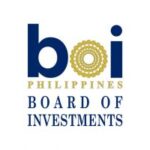Global family-owned enterprises are losing growth momentum as the proportion of companies recording double-digit sales profits fell from 43 percent to 25 percent in two years.
PwC analysts surveyed 1,325 family business leaders in 62 countries, finding that performance among family firms has changed sharply, ending the post-pandemic recovery phase that once set them apart for resilience. PwC said the decline represents a return to mid-pandemic levels for the sector that contributes about two-thirds of global GDP and 60 percent of jobs.
“Traditional forces like high reinvestment and low leverage are proving difficult to translate into growth amid geopolitical shocks, trade restructuring and advances in generative AI,” the report said.
The study shows that most family businesses have shifted from aggressive expansion to consolidation. Companies aiming for “steady growth” now outnumber those pursuing rapid expansion, indicating a more defensive strategy under persistent economic uncertainty. Only 22 percent of respondents said they actively innovate during market disruption, while only 3 percent reported completely redesigning their business.
Also Read: Family-owned businesses take center stage as Badpay unveils 'The Legacy Project'
PwC warned that such caution may leave many family companies unprepared for the pace of industrial and technological change. “Many family enterprises may be underestimating how much change is coming – and how fast,” the report said.
Yet, a subset of high-performing family companies continue to outpace competitors by incorporating purpose, agility and long-term investing into their strategies. Firms with a clearly expressed purpose are twice as likely to achieve strong growth, while firms described as “agile” have seen double-digit growth at 31 percent, compared to 21 percent among less agile peers.
“Companies with purpose-driven strategies and patient capital are proving to be more resilient,” said Matt Allen, professor of family enterprises at Northwestern University's Kellogg School of Management, who collaborated on the survey.
For African and Nigerian family groups spanning manufacturing, retail and logistics, the findings reflect a growing shift towards debt control, governance reforms and selective digital investments rather than diversification or listing. PwC Nigeria analysts said family-owned companies that have streamlined governance and succession structures are better positioned to maintain earnings through 2026 despite volatile markets.
The report concludes that the global family business landscape is entering a phase of slow growth where traditional forces must be redefined. “Standing still may seem like progress,” PwC warned, “but in today's environment, stagnation without innovation is not sustainable.”











